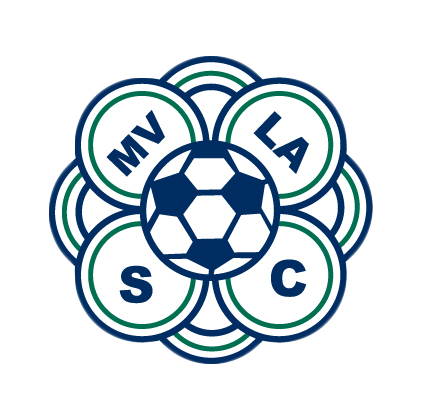MVLA Coach Code of Conduct
Our parents are an important part of the MVLA community. This page provides information about registration, financial aid, refunds and volunteering. If you have specific questions, please reach your team manager or a board member for help.
Setting a Good Example
- Coaches, in all contact with MVLA players, parents, officials and coaches, should strive to set an example of the highest ethical and moral conduct. Before, during, and after the game, they should be an example of dignity, patience and positive spirit.
- Before games, opposing coaches should meet and exchange greetings to set the proper tone for the game. After games, the teams and coaches should meet and congratulate each other in a sportsmanlike manner.
- Coaches should ensure that their players’ soccer experience is one of fun and enjoyment, and improvement in skill (winning is only part of it). Players should never be yelled at, lectured or ridiculed for making mistakes or losing a game. Coaches should be generous with praise when it is deserved.
- Coaches should avoid any conduct that could be construed as physically or verbally abusive.
- Coaches should completely refrain from verbal dissent during a game with an opposing coach’s bench.
- Coaches should honor all professional relationships with colleagues, associations, the media, officials and the public. Conflicts of interest and exploitation of these relationships must be avoided.
Keeping Players Safe
Coaches should have the safety of the players in their charge as their first priority at all times. Coaches should be familiar with the facility and fields on which their teams practice and play, and be mindful of the levels of fitness and skill of each one of their players. Coaches should also be familiar with the Laws of the Game, current with principles of age-appropriate coaching, aware of applicable existing rules and regulations, and informed of the affairs of MVLA and their league.
- Coaches should check players’ equipment and playing facilities frequently. They should meet safety standards and be appropriate for the age and ability of players.
- Coaches should follow the advice of a physician when determining when an injured player is ready to play again. During a game, and in an absence of medical advice, coaches should err on the side of caution in permitting an injured player to return to play.
Creating a Positive Experience
- Coaches should require all players and spectators to adhere to the highest level of sportsmanship at all times. During the game, the coach is responsible for the sportsmanship of the players. If a player is carded or is disrespectful, irresponsible or overly aggressive, the coach should remove the player from the game at least long enough for him/her to calm down. Coaches should explain acceptable behavior to players and parents at a preseason meeting. Encourage parents to make positive comments about good play by either team. Prohibit them from yelling at players and the referee.
Relating to Officials
Coaches should demonstrate respect for the official and his/her role. Coaches can help referees improve by letting them concentrate on the game, accepting their inevitable, occasional mistakes, and offering constructive post-game comments.
- Before a game, coaches should introduce themselves to the referee. During the game, they should never address the referee except to request a substitution. After the game, they should thank the referee and ask players to do the same.
- A small disagreement should be discussed with the referee calmly after the game. For major complaints, or if the referee appeared to be unfair, biased, unfit, or incompetent, report opinions to the Director of Referees, the MVLA Referee Coordinator (referees@mvlasc.org)?
Communications and Conflict Management
Feedback and responsiveness to player and parent communications is part of setting a good example and contributes to the type of experience that players have. Thus, it is important that coaches respond to texts, emails or phone messages from their players or parents on the teams they coach within a reasonable time frame. That would normally be within 2-3 days of the player or parent outreach. The coach may not have every answer available to questions/issues raised, but will follow up with the player or parent to acknowledge the communications and will follow up in a timely manner with the answer if not immediately known. If the coach does not know how to answer the matter, he or she should reach out to the Director of Coaching for additional advice or guidance.
Coaches set an example and how they respond to communications demonstrates their respect and sensitivity to player or parent matters brought to their attention. Communications not addressed by the coach may be escalated by the parent (for unresolved issues with the player or parent) using the Club Escalation Process. Multiple offenses of not addressing matters raised in a timely and professional manner may result in disciplinary action.
Should conflict arise between MVLASC coaches, players, or parents it is required that such confrontations be addressed in the appropriate manner (with respect), and at the appropriate time (privately). While the coaches are committed to open communication with parents, there is a certain process that should be observed. In particular, the time before and during a game is dedicated to the players. It is not appropriate for a parent to approach a coach to discuss game or individual player concerns at this time. The coach will be happy to set up a meeting/phone call to address parent concerns at a time that will not interfere with the attention required by the players. An exception to this request is an incident when a player is injured. If a player falls ill shortly before a game, the parent should text or call the coach to advise of the change in the player’s status. The coaches will be available immediately after a game to discuss the situation and any concerns with parents.


